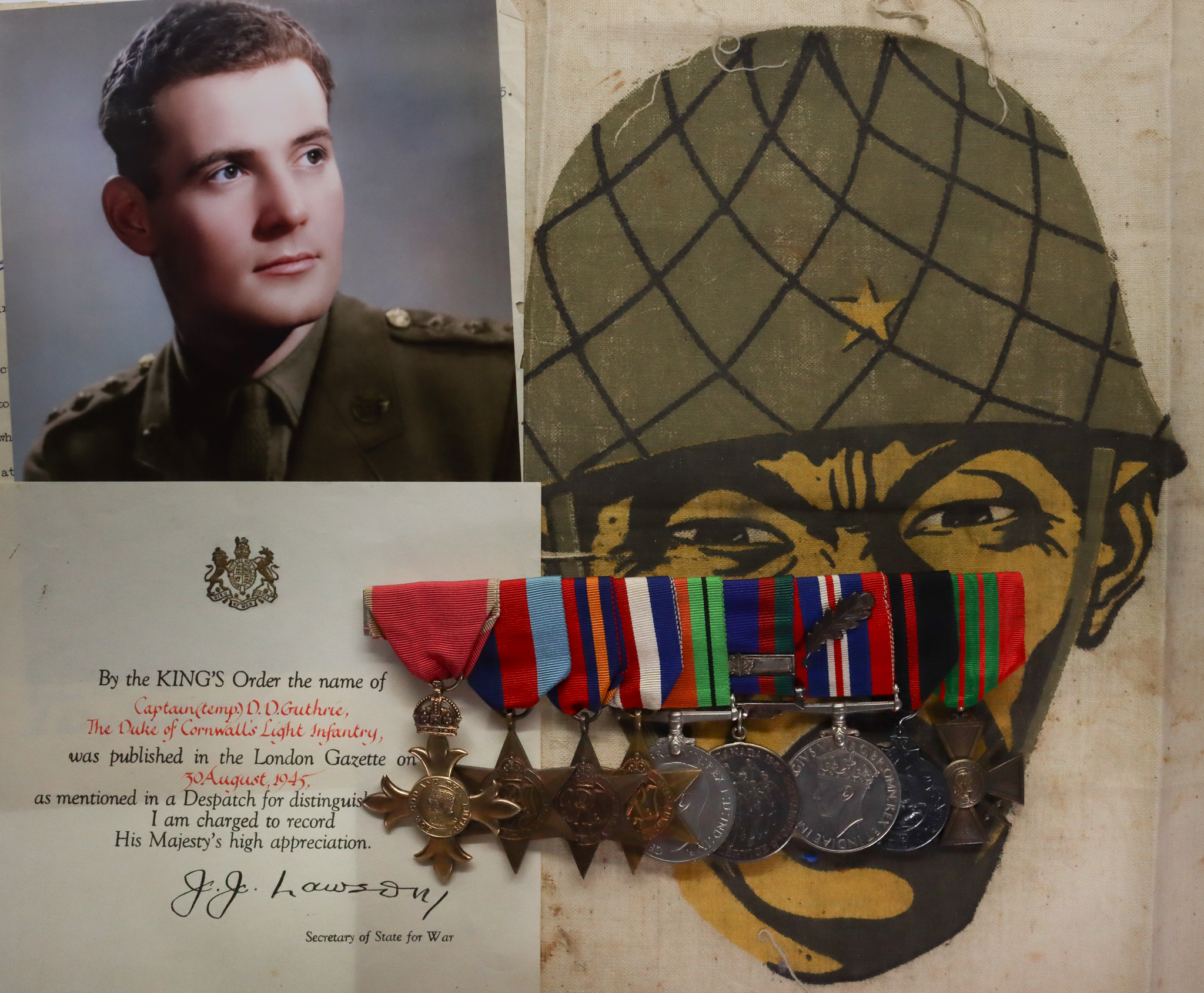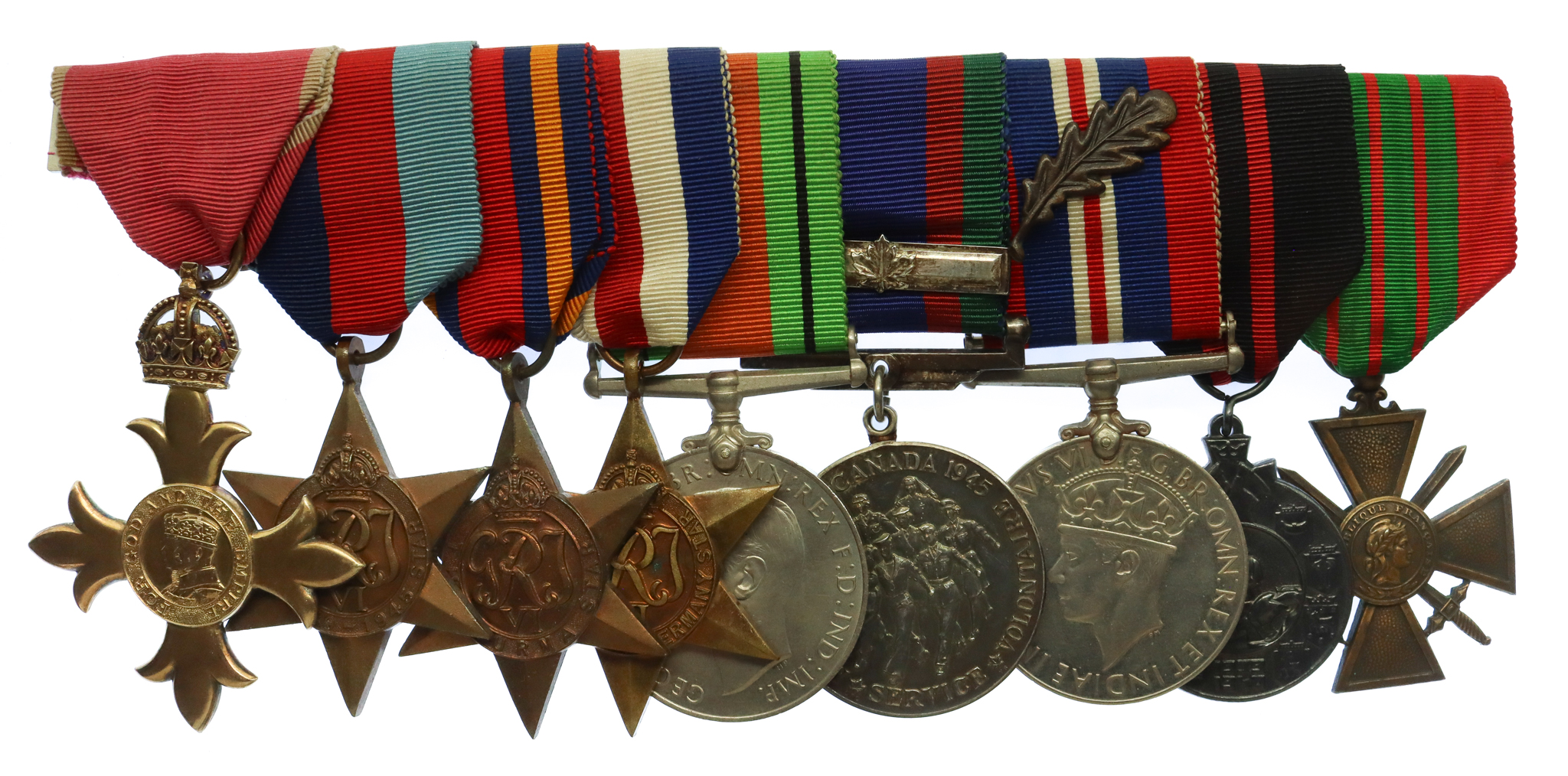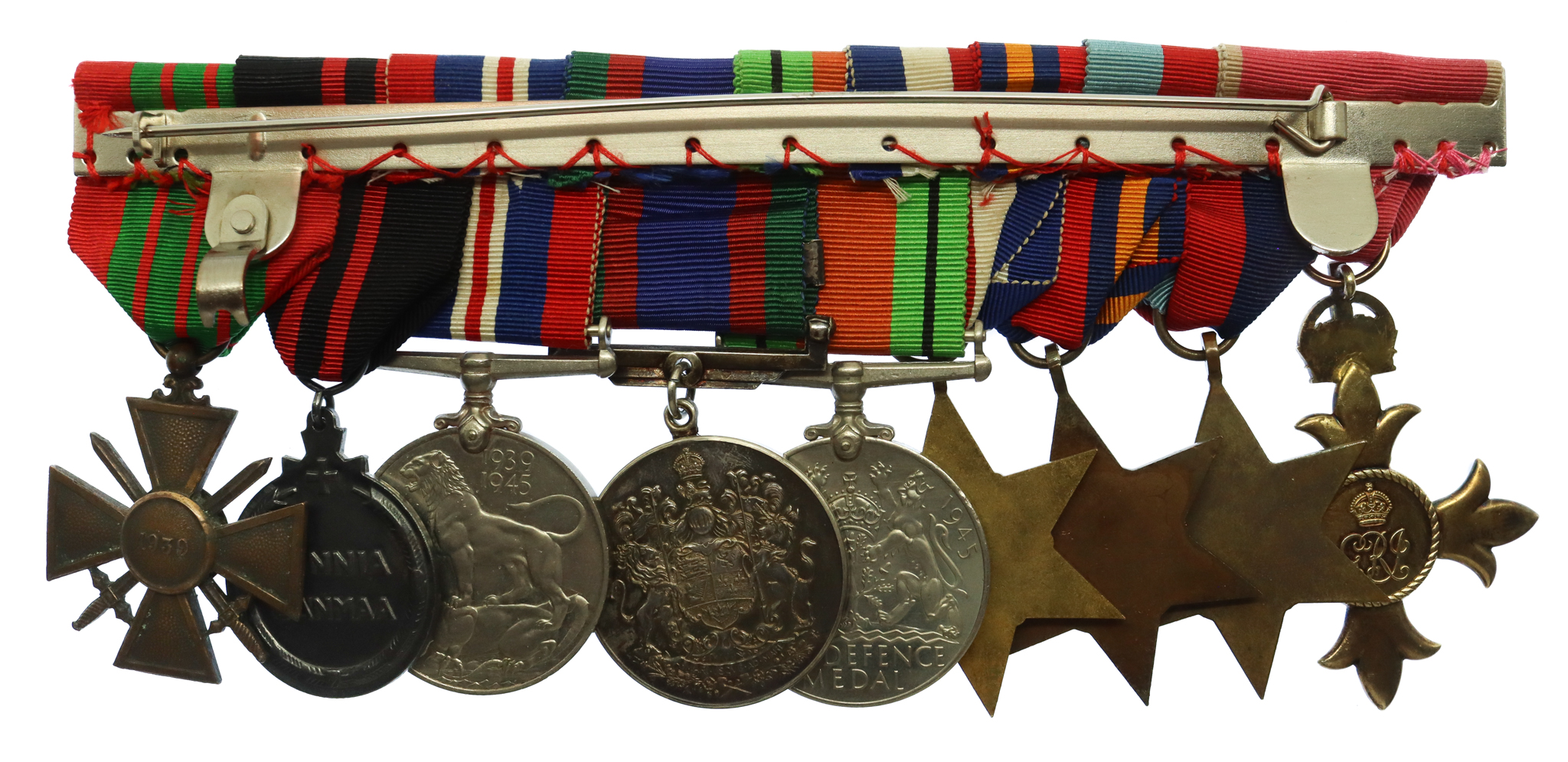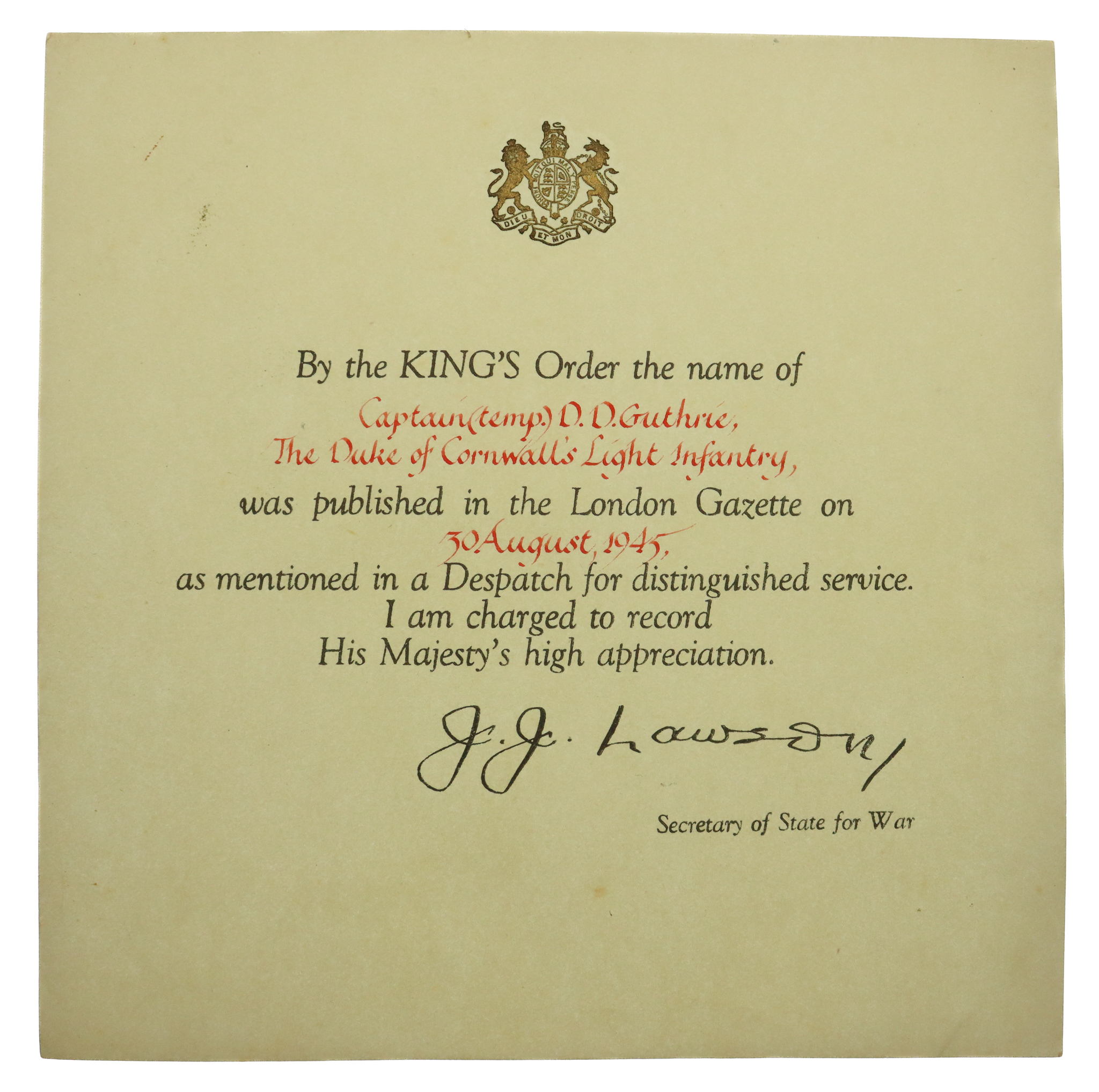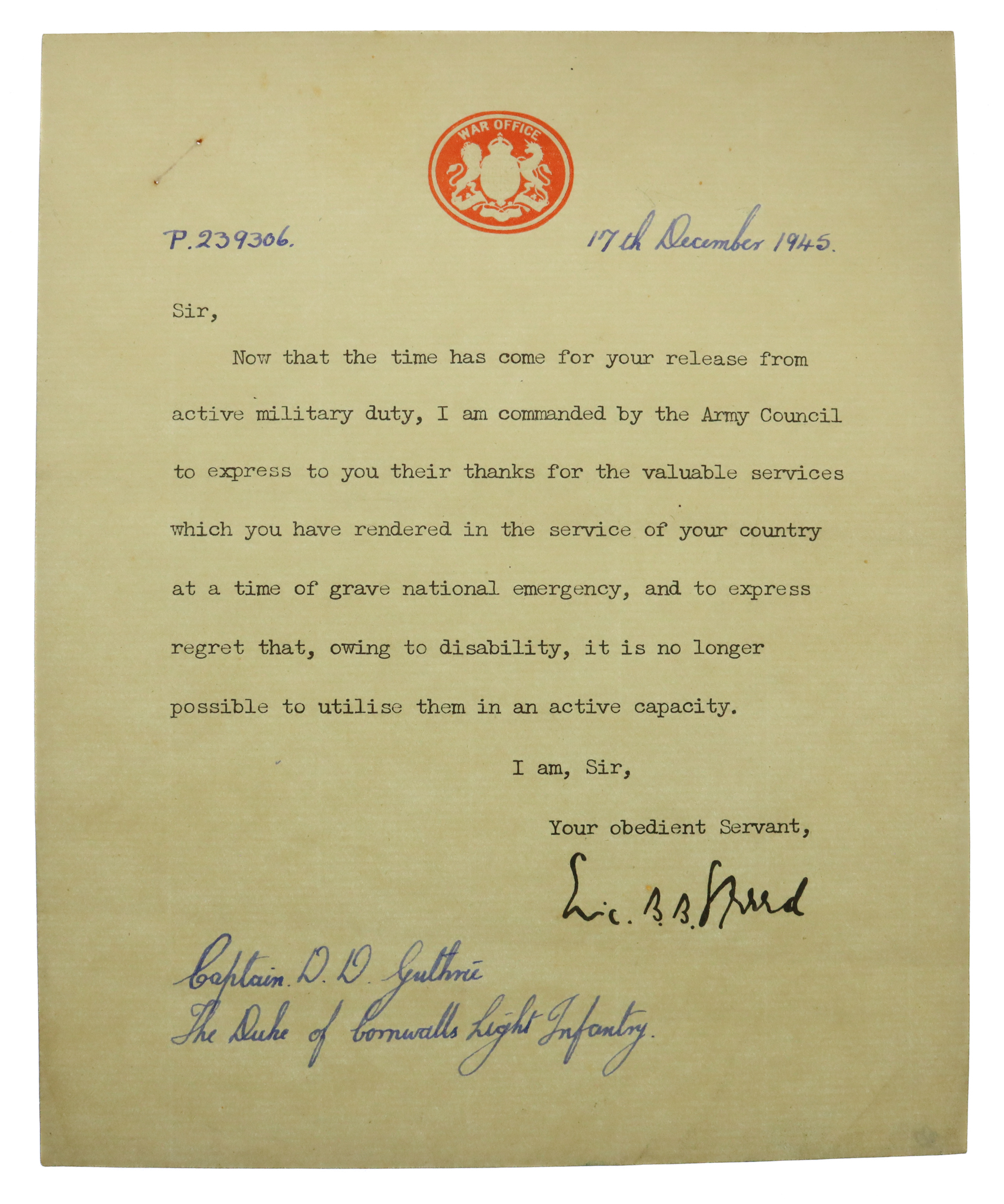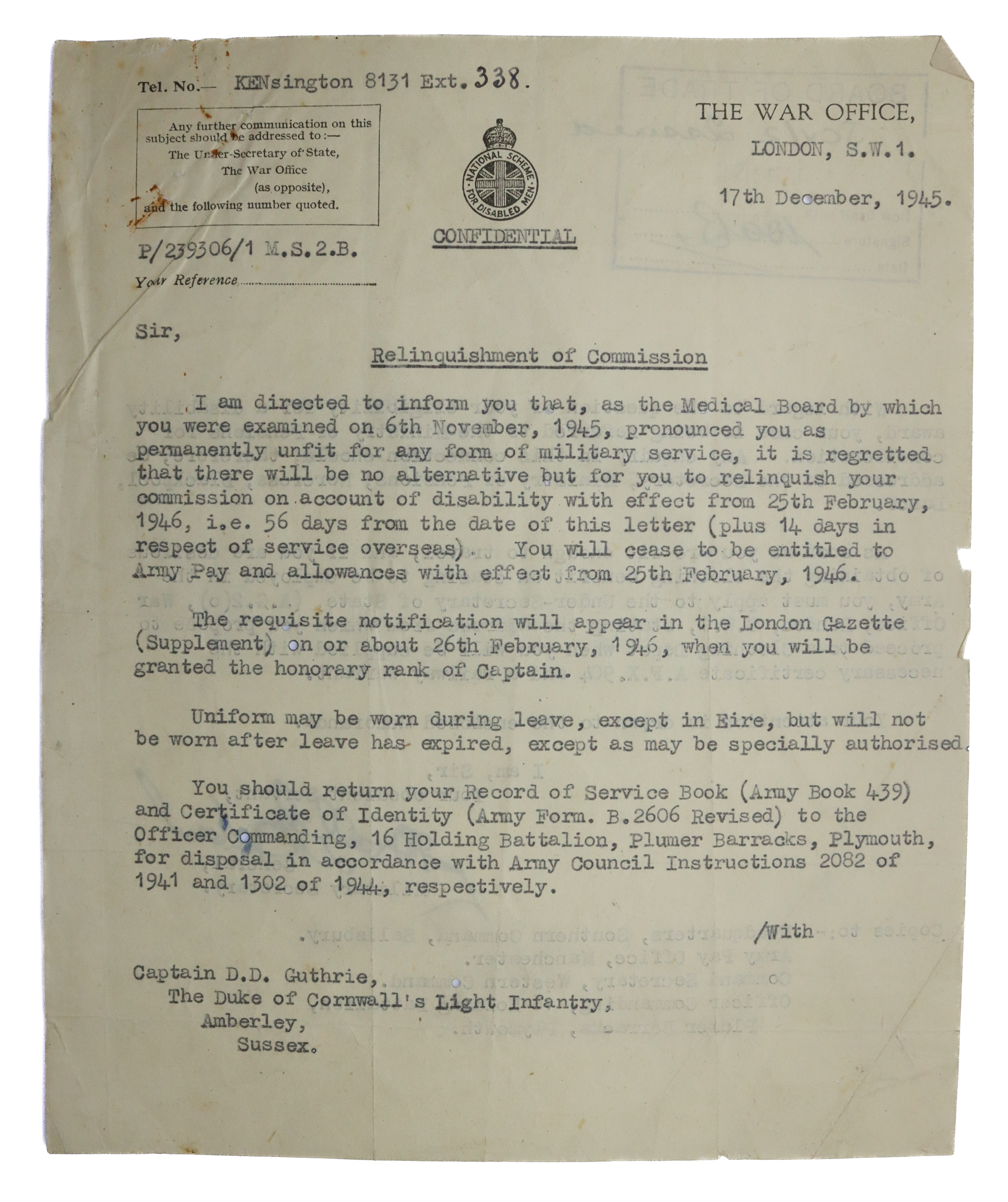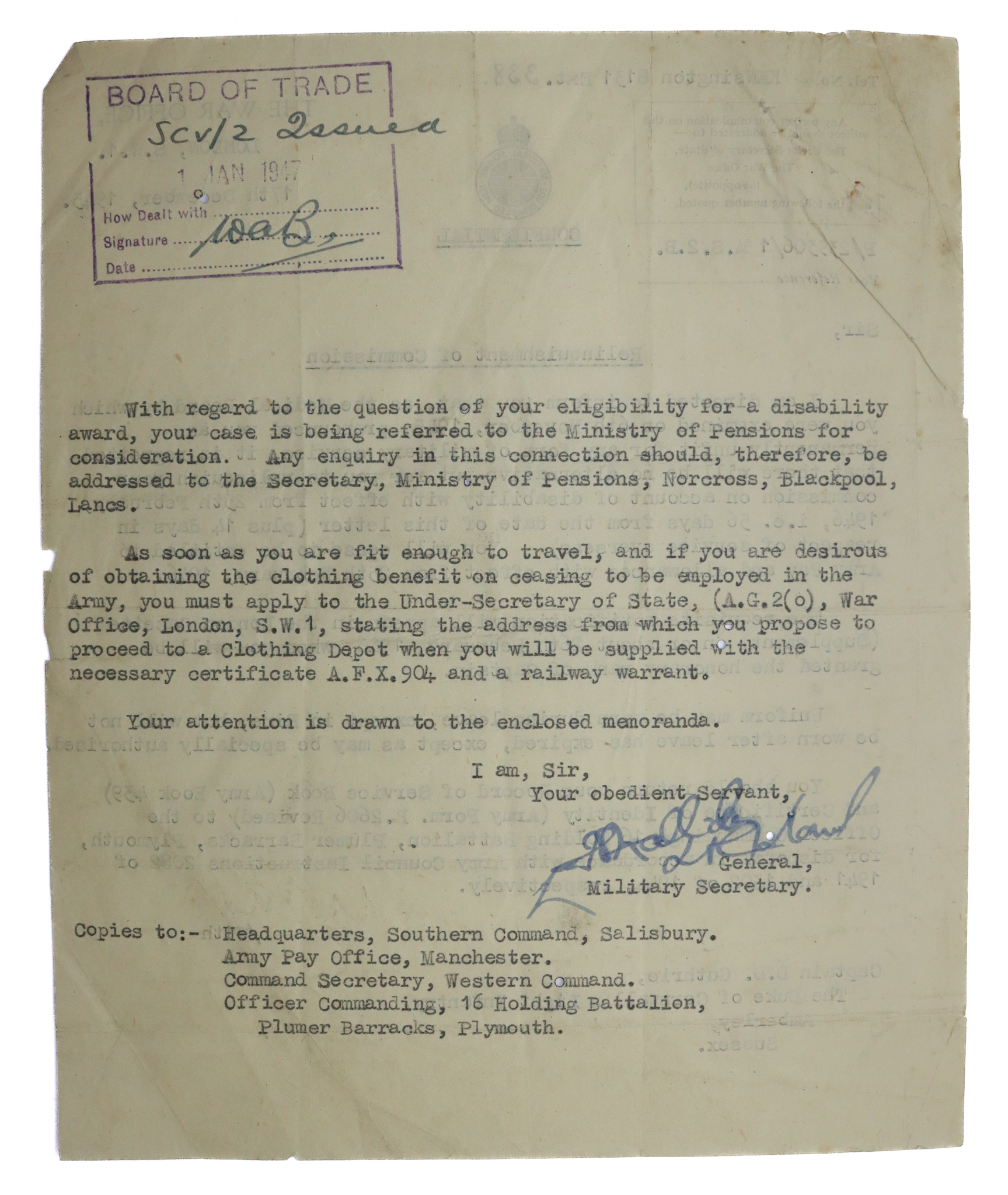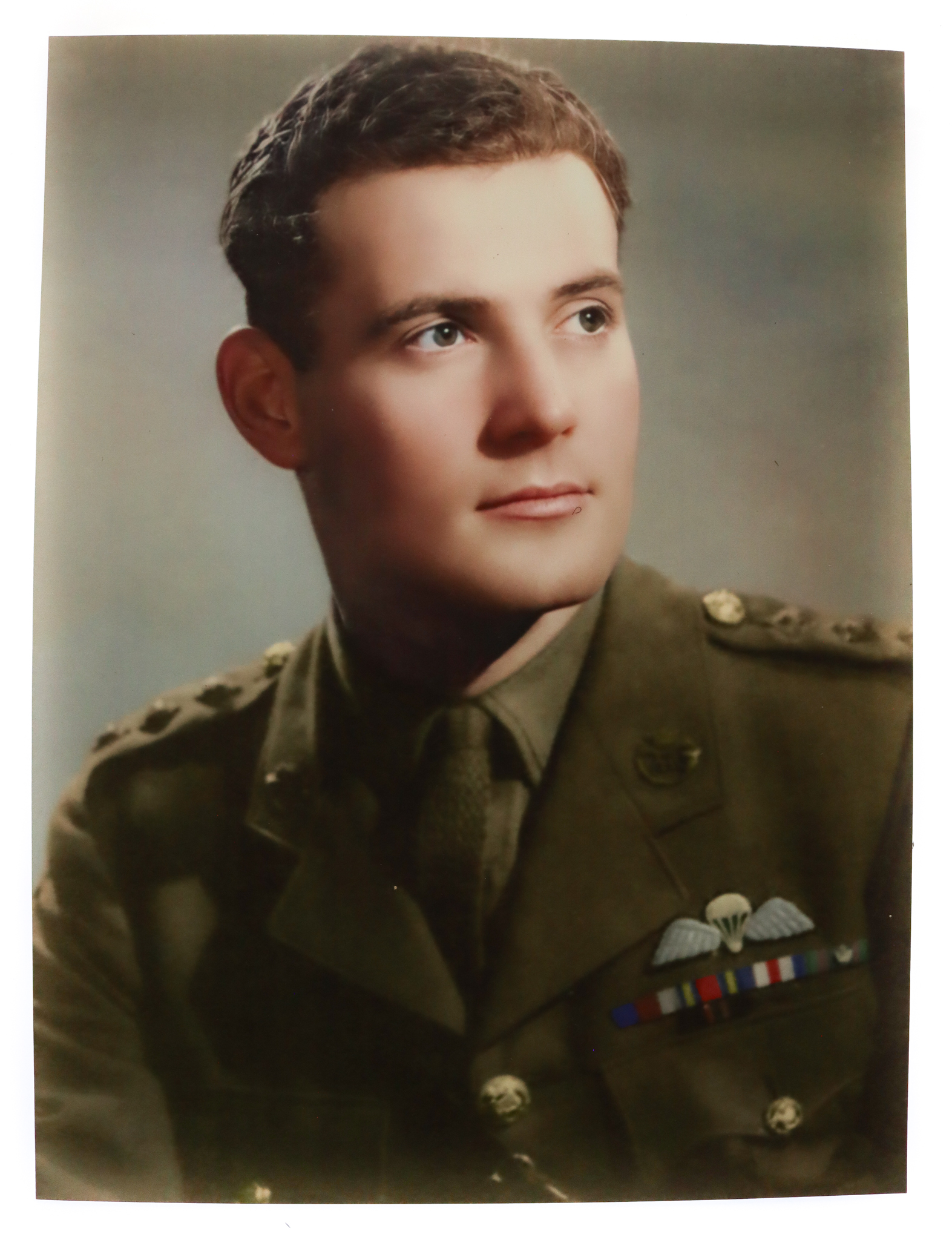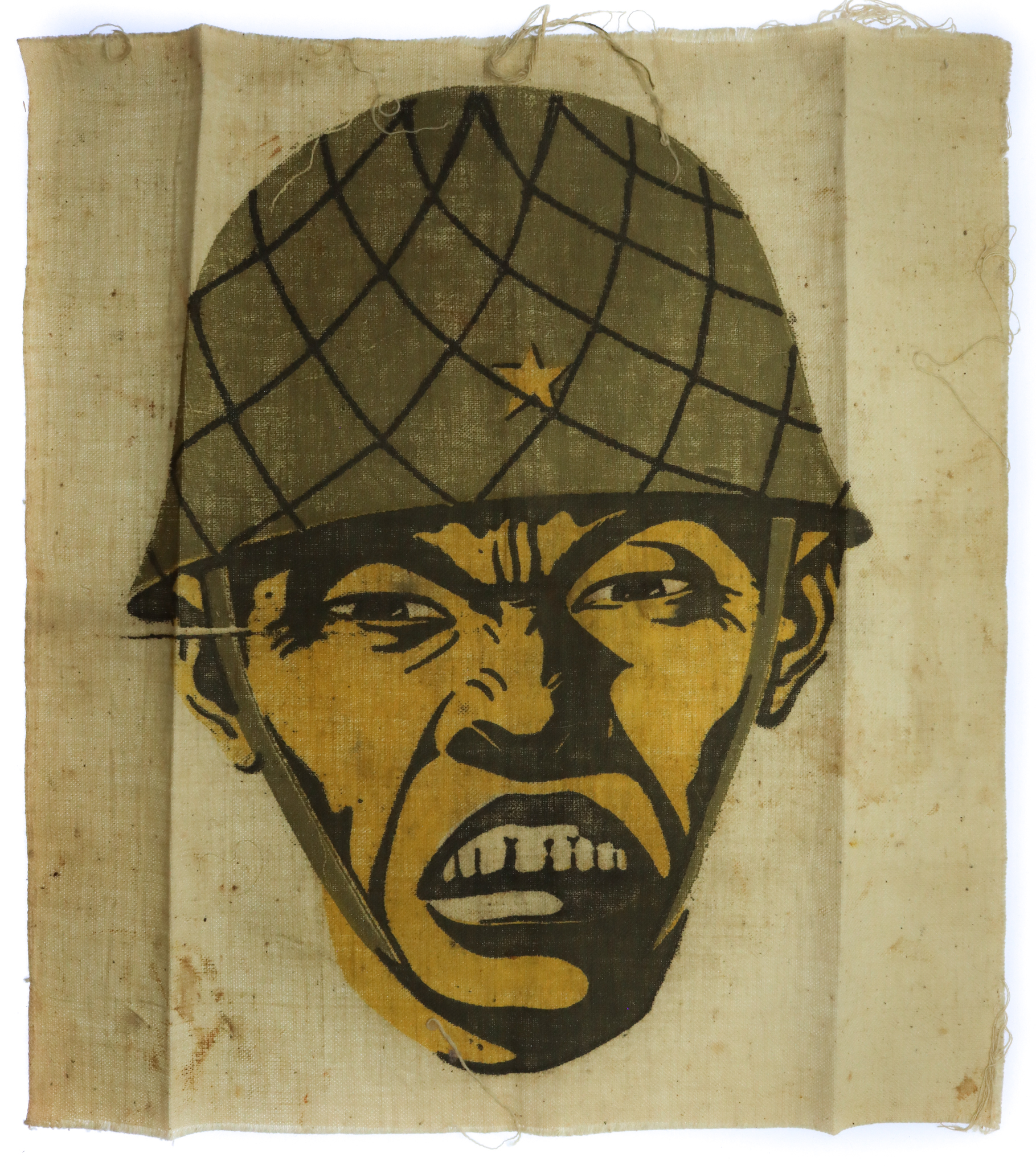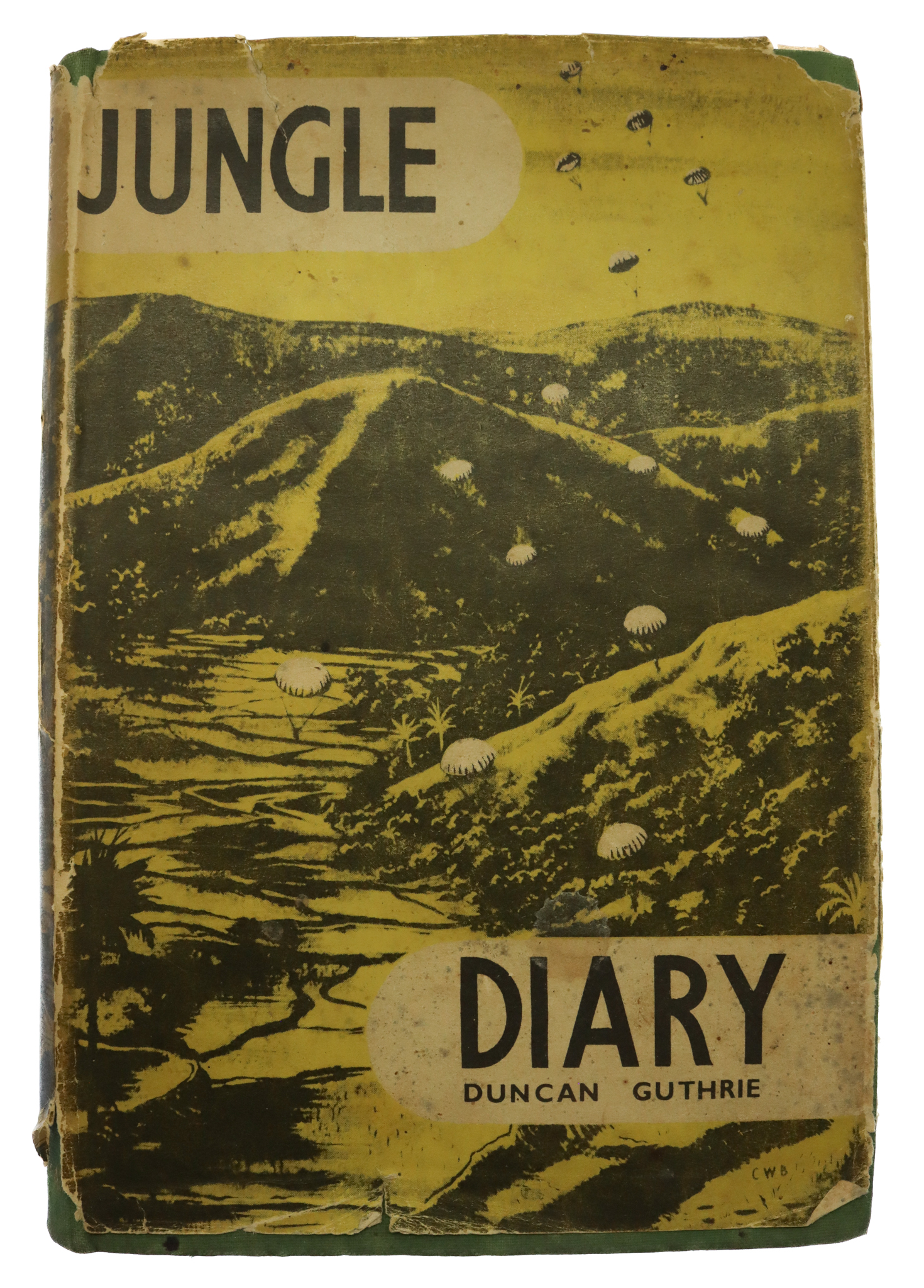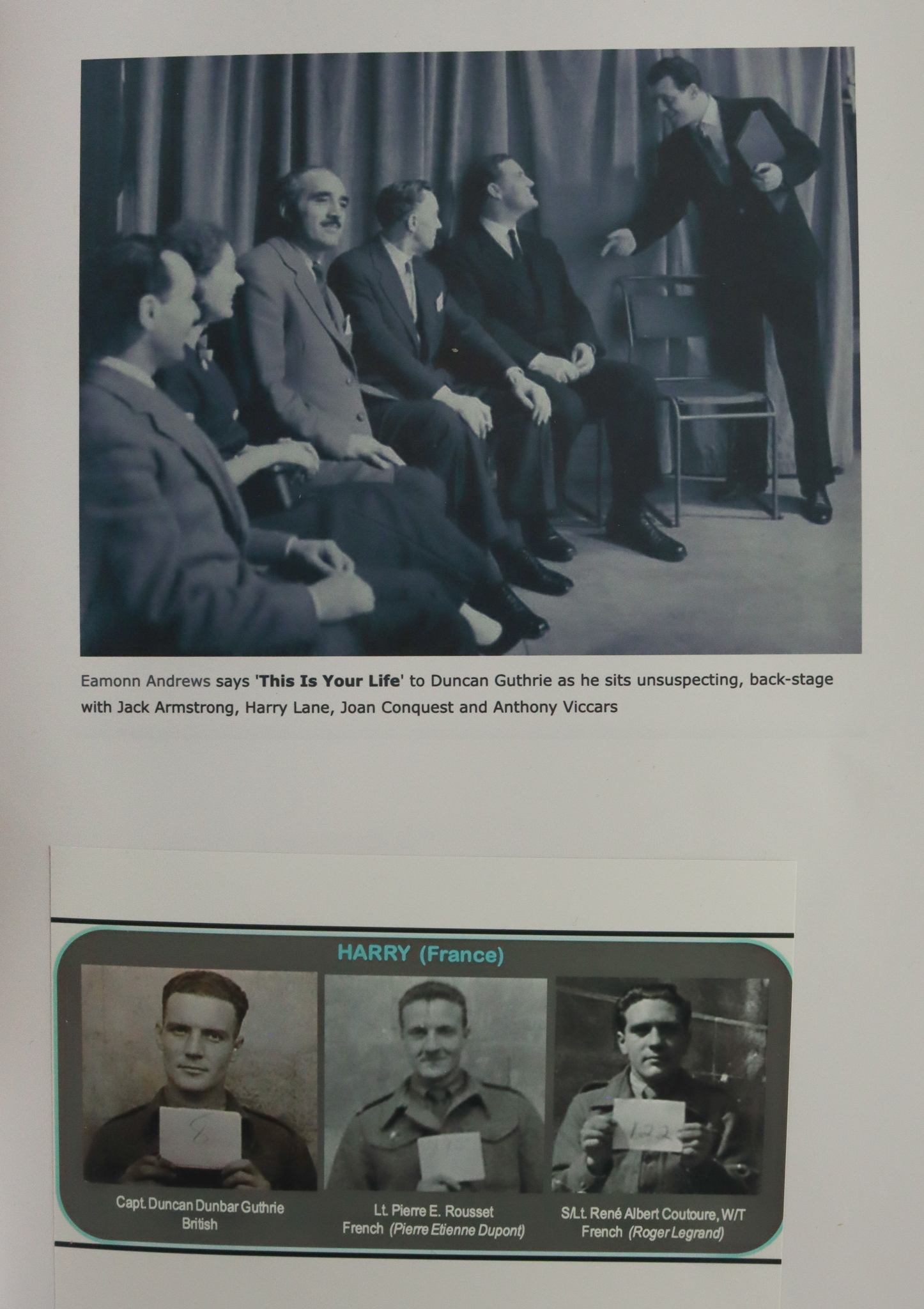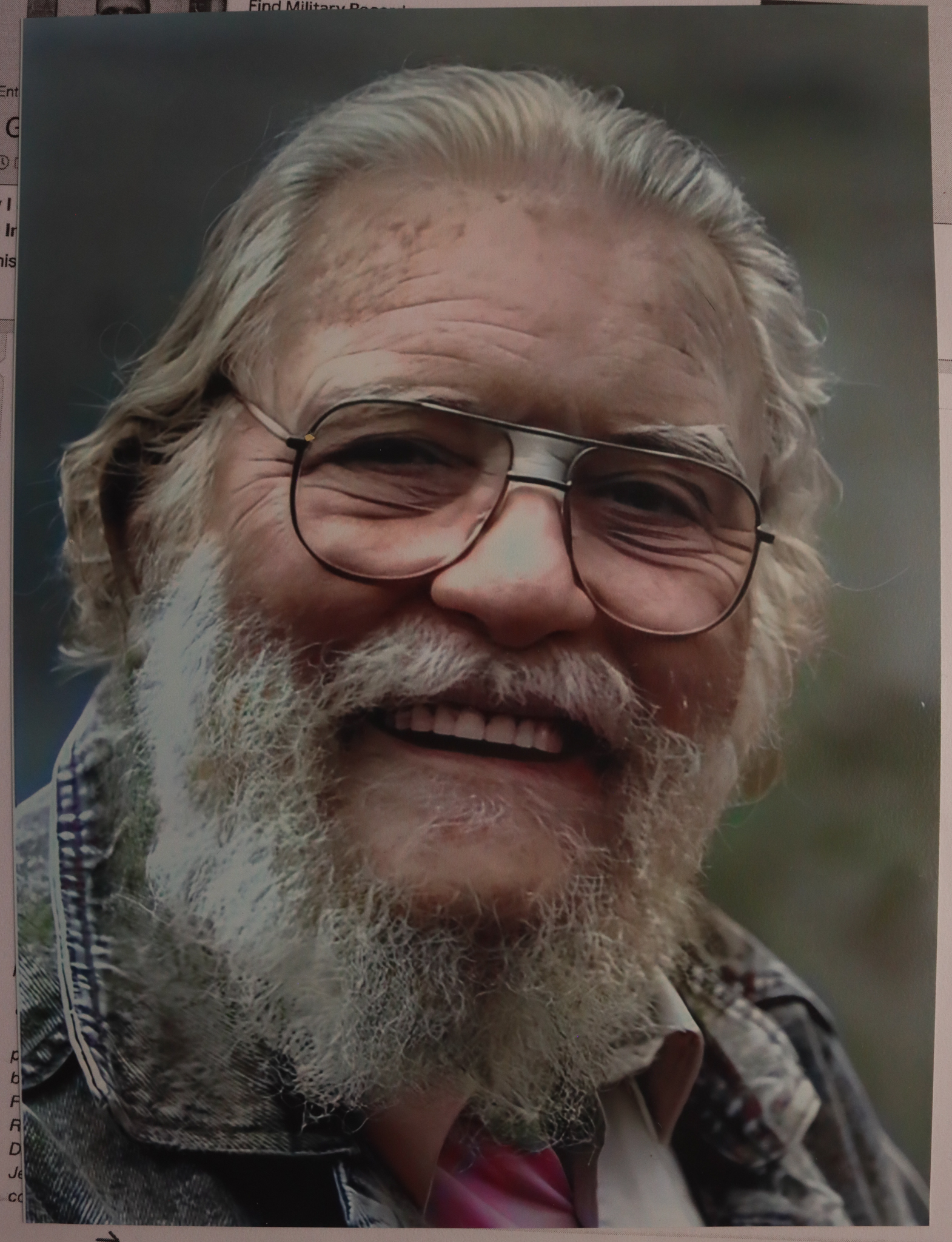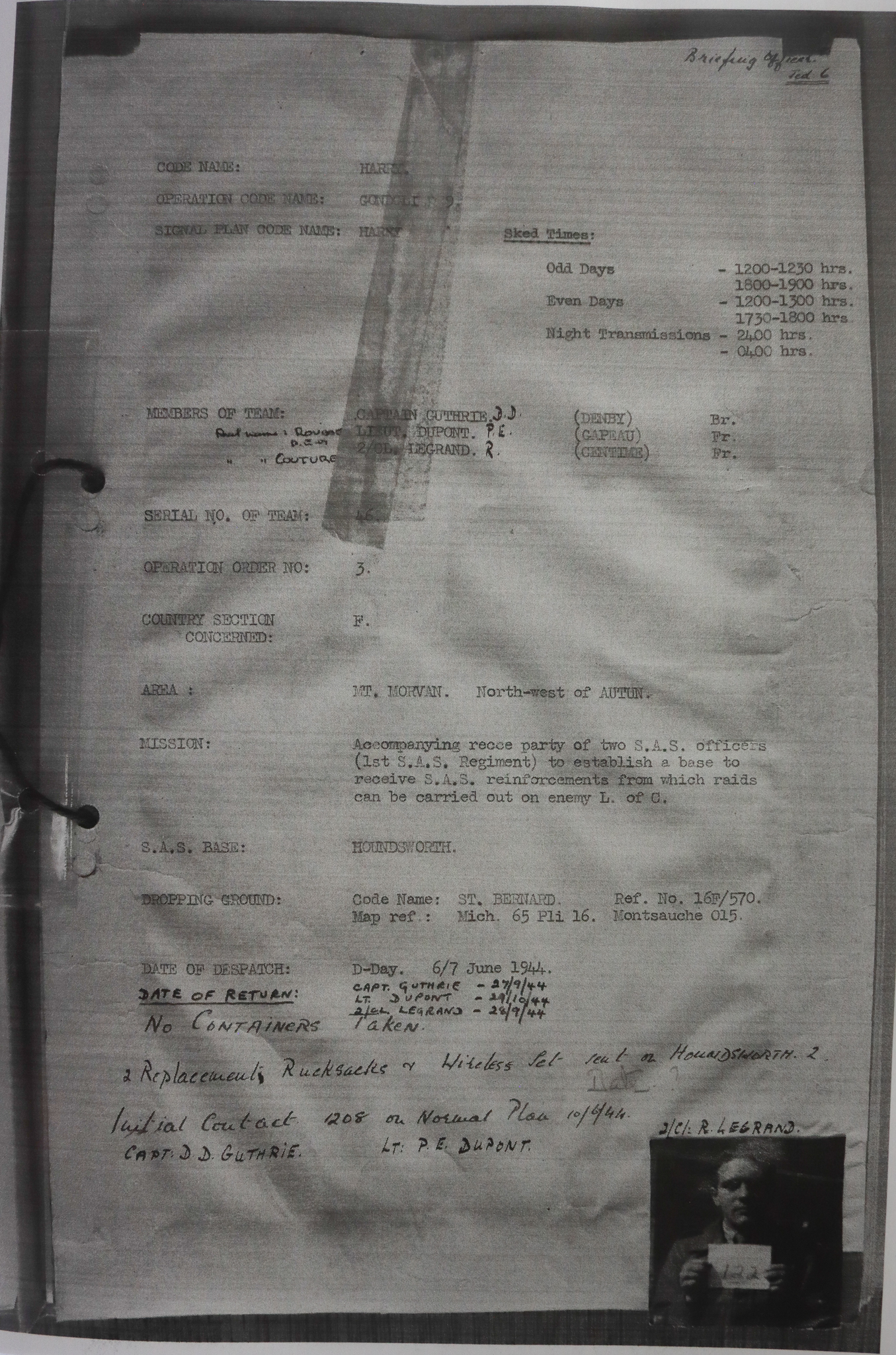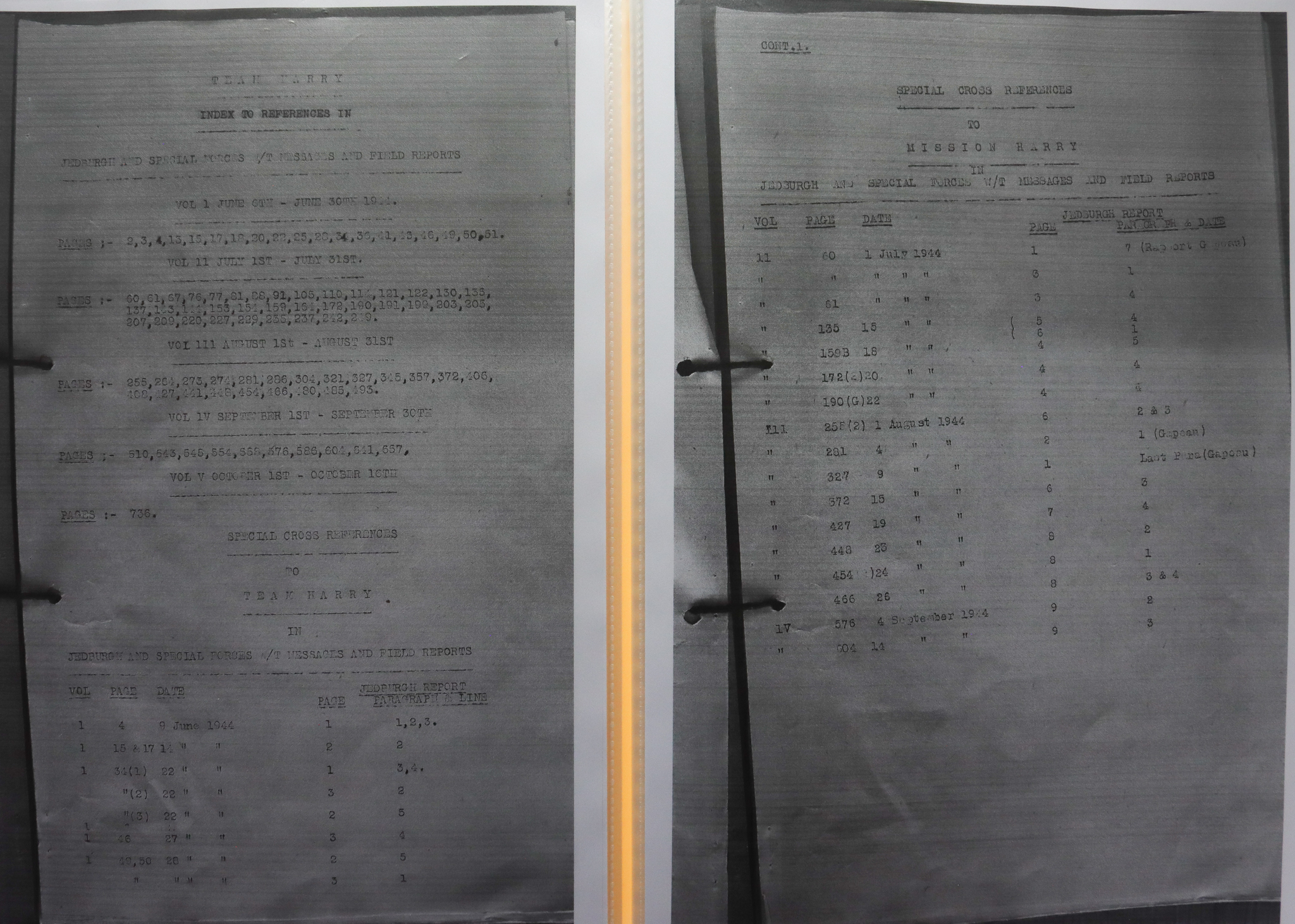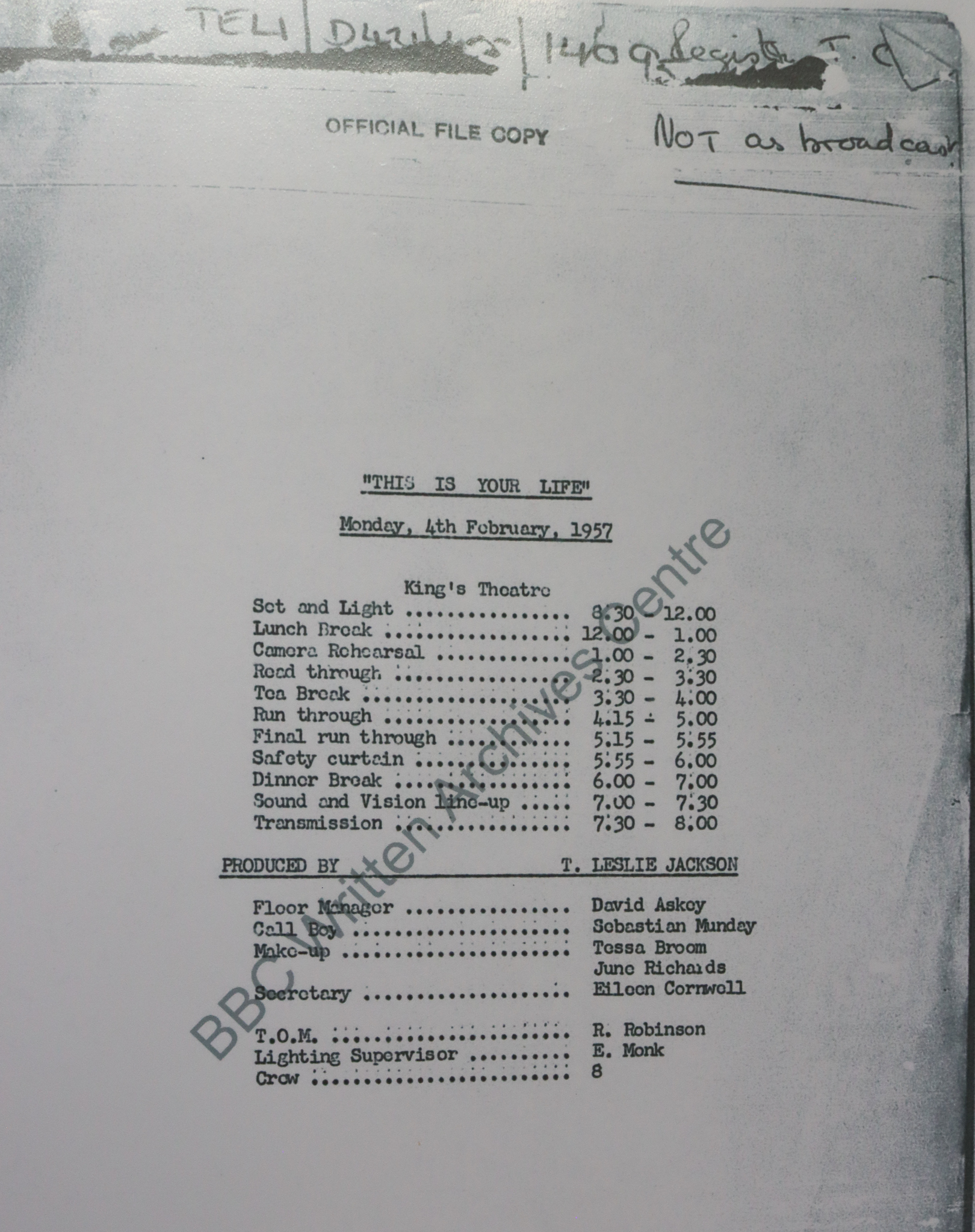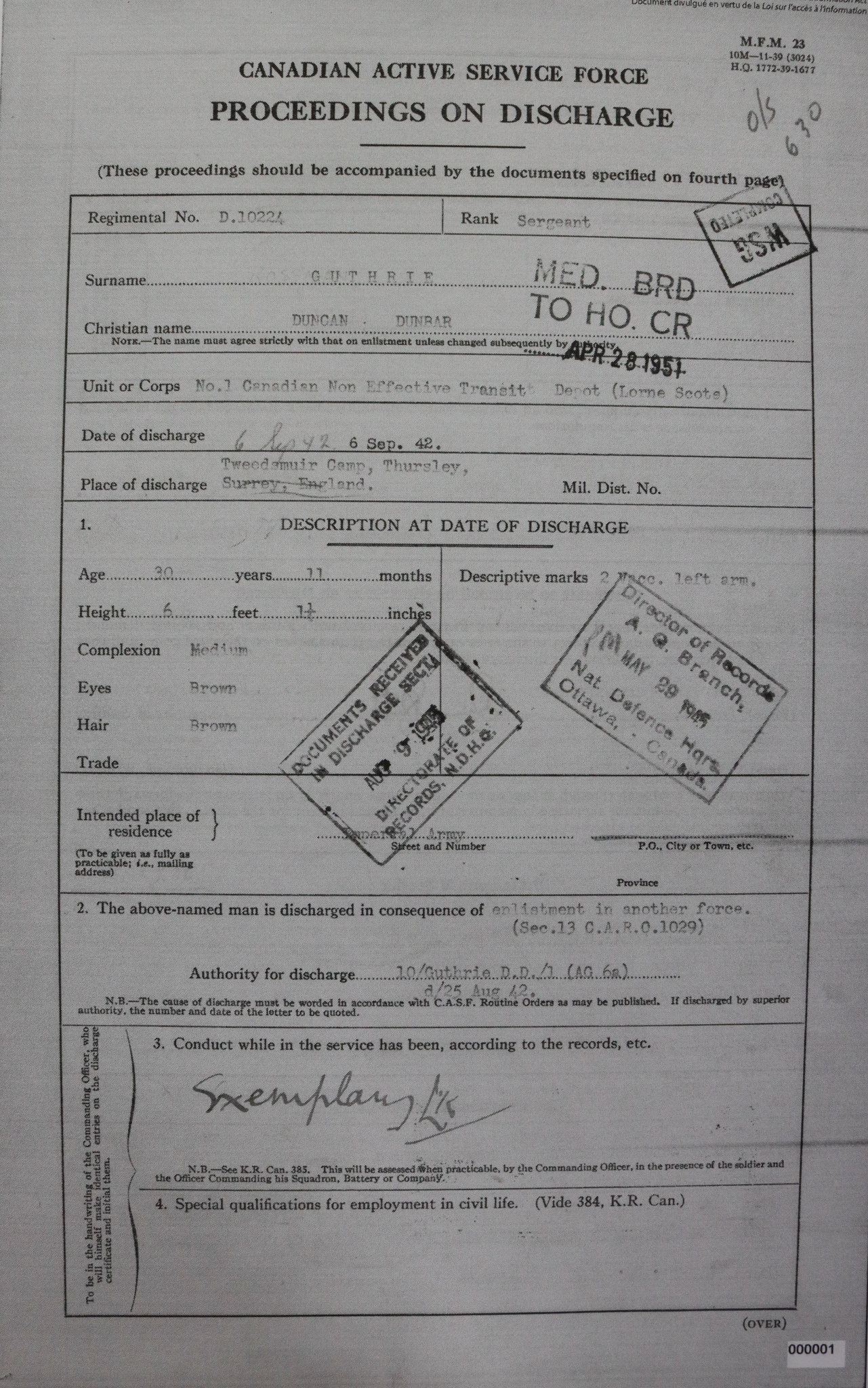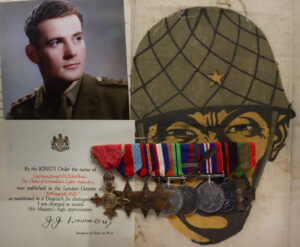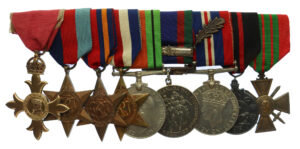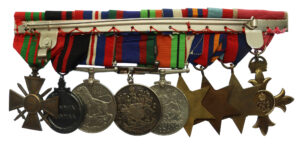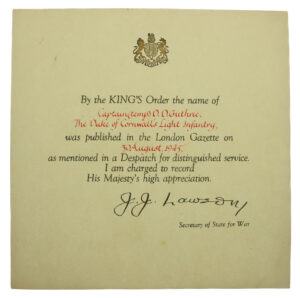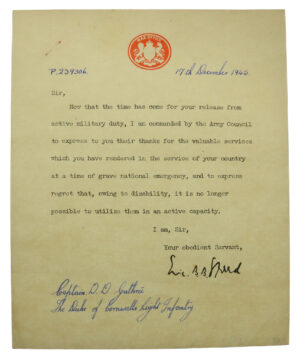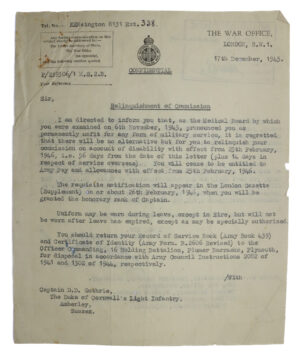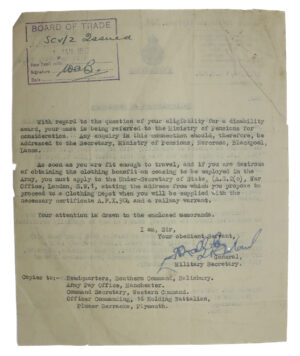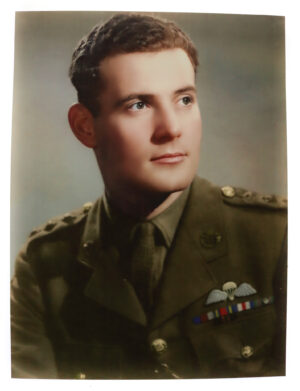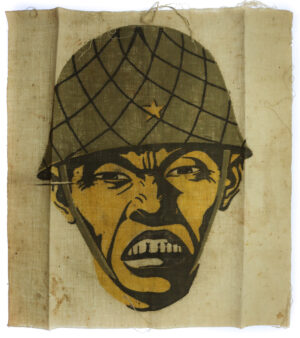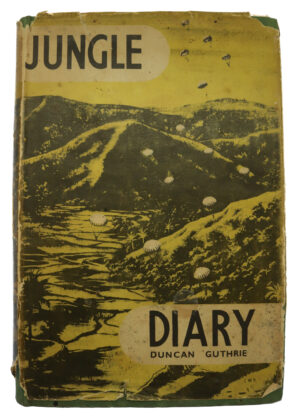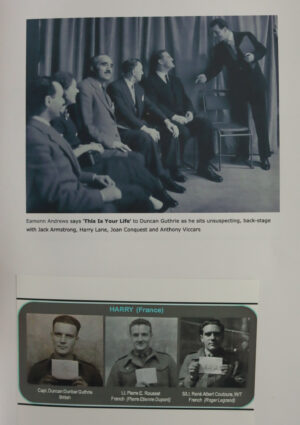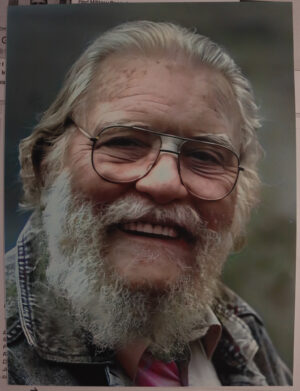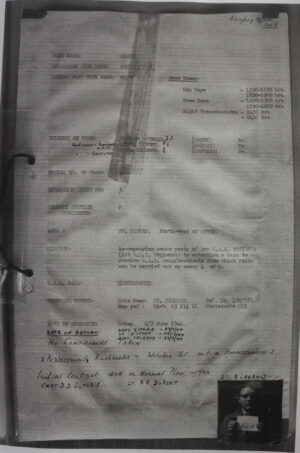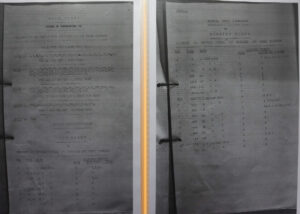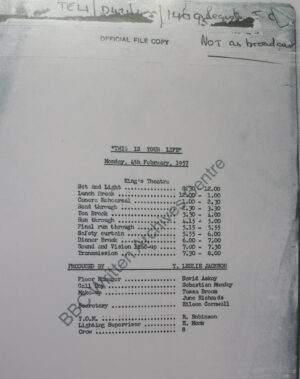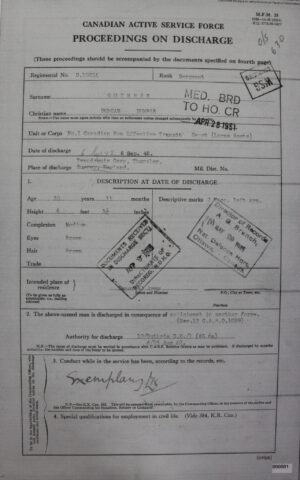A Remarkable WW2 Special Operations Executive (SOE) / Jedburgh Medal Group with Documents – Captain Duncan Dunbar Guthrie OBE
£3,995.00
An extraordinary group to an actor-turned-soldier who fought in the Finnish Winter War, escaped via Norway to North America, and joined the Canadian Artillery before be commissioned into the British Army. Volunteered for SOE, commanded a Jedburgh team, parachuted into France on D-Day, later serving with Force 136 in Burma, where he was badly injured. Post-war he wrote Jungle Diary and led Britain’s polio vaccination drive, earning an OBE.
Sold
A remarkable and historically significant Second World War medal group to Captain Duncan Dunbar Guthrie OBE, a former actor who served in the Special Operations Executive SOE, commanded a Jedburgh Team and was with Force 136.
Officer of the Most Excellent Order of the British Empire OBE (Civil) unnamed as issued
1939-45 Star unnamed as issued
Burma Star unnamed as issued
France & Germany Star unnamed as issued
WW2 Defence Medal unnamed as issued
WW2 Canadian Volunteer Service Medal (with Overseas Service Bar) unnamed as issued
War Medal 1939-45 (with MID oak leaf emblem)
Finland, Winter War Medal unnamed as issued
France, Croix de Guerre unnamed as issued
The medals are in good condition and are swing mounted for wear.
Duncan Dunbar Guthrie, who was an actor before the war, went to fight in the Finnish Winter War in 1939/40, with the Atholl Highlanders, a private army. By the time the Finnish war ended, Hitler had invaded Norway, making it impossible to get back to England. He managed to get out of Finland via occupied Norway by stowing himself on a ship to the USA. From there he got into Canada where he joined the Canadian Artillery in an effort to get back to the UK. On reaching the UK he was recommended for a commission but felt the Canadian Army was not for him and transferred to the British Army where he was commissioned into the Duke of Cornwalls Light Infantry. He was awarded the Canadian Volunteer Service Medal and joked that it was awarded to Canadians for service overseas but he got it for going home.
He then volunteered for Special Duties and joined the SOE/Jedburgh. The British Special Operations Executive (SOE) and its American counterpart, the Office of Strategic Services (OSS), came up with the concept of the Jedburghs in May 1943. The idea was that small groups of military personnel would be inserted by parachute inside territory occupied by Nazi Germany to assist local resistance forces and to carry out military operations. Unlike SOE agents who worked in occupied Europe, the Jedburgh teams would be armed and uniformed military personnel. Fluency in the language of the European country where they would operate was required, although the language requirement was reduced for radio operators. The “Jeds”, as the men on Operational Jedburgh teams were called, were all volunteers.
Only about 300 Jeds were selected. After training at commando bases in the Scottish Highlands, they moved to Milton Hall near Peterborough, which was much closer to the airfields from which they were to be launched, and to London and Special Force Headquarters. At Milton Hall they received an intensive course in unarmed combat and sabotage techniques.
In addition to their personal weapons (which included an M1 carbine and a Colt automatic pistol for each member) and sabotage equipment, the teams dropped with the Type B Mark II radio, more commonly referred to as the B2 or “Jed Set”, which was critical for communicating with Special Force Headquarters in London. They were also issued pieces of silk with five hundred phrases that they were likely to use in radio traffic replaced with four-letter codes to save time in transmission, and one-time pads to encipher their messages. Each officer wore a money belt containing the cash he was to distribute to resistance fighters. Equipment and supplies were airdropped with the Jeds.
The Jedburgh teams normally parachuted in by night to meet a reception committee from a local Resistance or Maquis group. Their main function was to provide a link between the guerrillas and the Allied command. They could provide liaison, advice, expertise and leadership, but their most powerful asset was their ability to arrange airdrops of arms and ammunition. Like all Allied forces who operated behind Nazi lines, the Jedburghs were subject to torture and execution in the event of capture, under Hitler’s notorious Commando Order.
Guthrie was the Captain in charge of “Team Harry” and was dropped into France on the night of 6/7th June 1944. They were dropped with some SAS officers and their task was to establish a firm base with the aid of the Maquis to supply and support the SAS during Operation Houndsworth. Guthrie was in France for 3 months and the group is accompanied by a copy of the official report on Operation Harry from the National Archives. For this operation Guthrie was mentioned in despatches.
Harry’ was a Special Operations Executive (SOE) Team dropped on 06 June 1944 in Nièvre Department, Bourgogne, France (Allied Forces Region in France, French Forces of the Interior: P3).
Its team was composed of 3 men:
Captain DD Guthrie, Great Britain, SOE Code Name: Denby.
Lieutenant P Rousset, France, War name(*): PE Dupont, SOE Code Name: Gapeau.
Lieutenant R Couture, France, War name(*): R Legrand, SOE Code Name: Centime.
After returning to the UK, Guthrie volunteered for Force 136 in the Far East. On the 24th February 1945 he was parachuted into the Karen Hills, near the Burma/Thailand border. Their object was to raise and supply the Karen levies to fight the Japanese. Unfortunately he landed in trees and broke his leg, two others were injured on the drop. They were left in the Jungle while other team members went about their task. Before they left them they arranged for local Karen’s to help them. It was 3 months before Guthrie was flown out, by which time his leg had set in the wrong position. On being flown back to India he was told they could do nothing to repair the badly set break in his ankle. He was sent back to the UK where they basically smashed the joint to pieces and fused it. This stopped the pain but he was crippled for life and given a medical discharge from the Army. He wrote a book about his experiences in the jungle which he later published the book – Jungle Diary, a copy of it comes with the medals.
Post war he married and his daughter became crippled by polio. He then set up a charity and was instrumental in funding the development of the polio vaccine and introducing a polio vaccination programme for children in England. He was awarded an OBE in the New Years Honours list in 1976.
Guthrie was on “This is Your Life” on 4th February 1957 and a copy of the script is included with the group. Members of the Maquis and fellow SOE/Force 136 agents were brought on the show. He died in 1994.
The group comes with his original Mention in Despatches certificate, an original letter regarding his medical discharge and an original letter regarding relinquishment of his commission. It also comes with copy of his personal papers that his daughter gave to the Imperial War Museum – these consist of letters to his mother during the war. The Imperial War Museum has a sound copy of an interview with him regarding his war experiences. This is available to listen to on their website and lasts about 2 hours.
Together with a copy of Guthrie’s Canadian Army Service records confirming issue of Defence, Overseas Service and War medals. A letter from him to the Canadians states he only needs the Overseas medal as the British had issued him with the Defence and War Medals.
We take great pride in our stock and will always strive to bring you genuine items. All our items are carefully checked to make sure they are authentic original pieces.
Having worked in the field for many years we appreciate that there can occasionally be differences of opinion. This is why we have a no quibble returns policy on ALL items. If you want to return any purchase, for whatever reason, we will issue a full refund including your postage costs.
PAYMENT:
We accept payment by:
Credit and debit cards
Cash (any currency)
U.K. postal orders
Sterling cheques
PayPal
Exchange of goods
SHIPPING:
Our standard shipping costs apply on almost all of our items. The prices are as follows:
UK Standard Delivery – £3.95
UK Special Delivery – £10.95
Europe Priority Airmail – £10.95
Rest of World Priority Airmail – £11.95
Some large/heavy items may incur extra shipping costs. This will be clearly marked in the description and all prices will be shown before any payment is taken.
For more information on payment and shipping please click here
